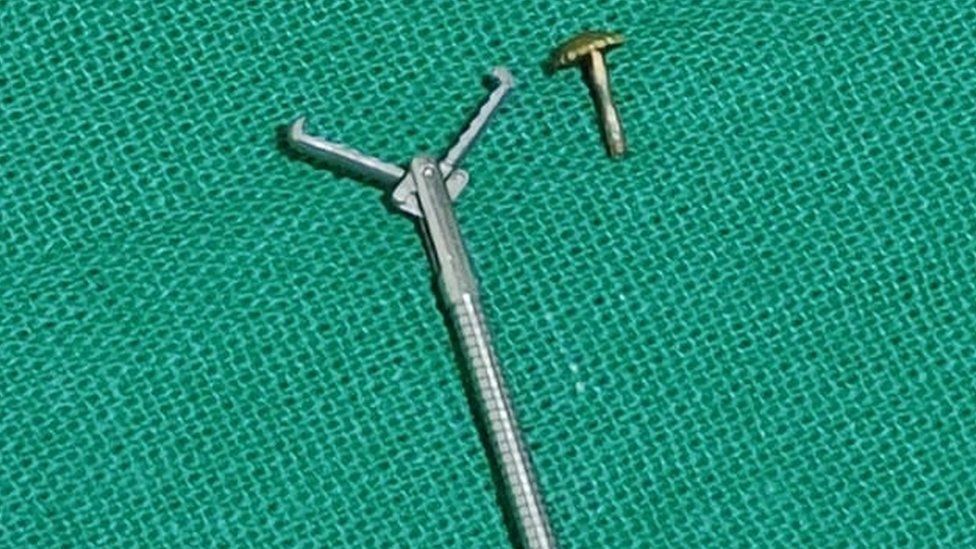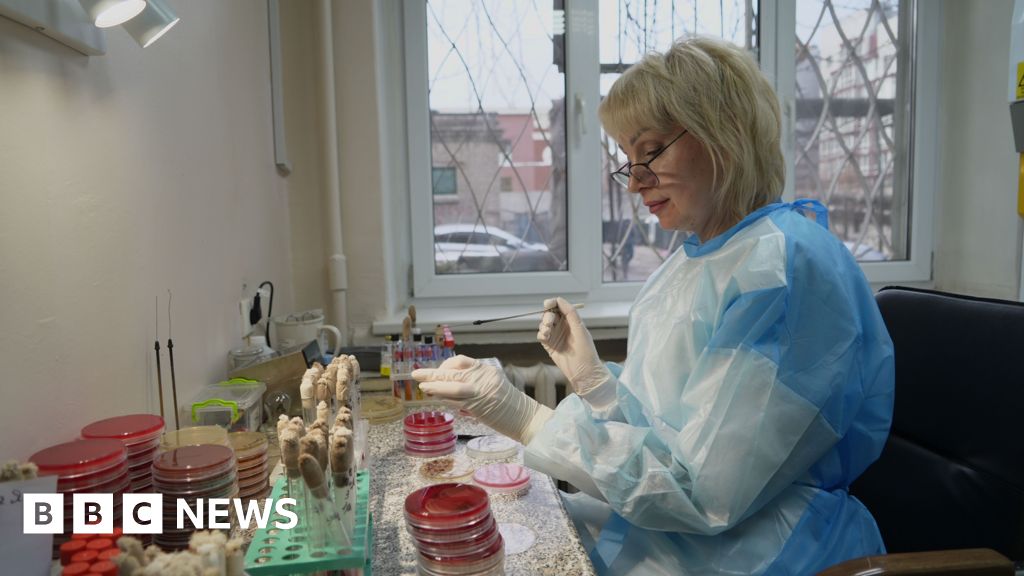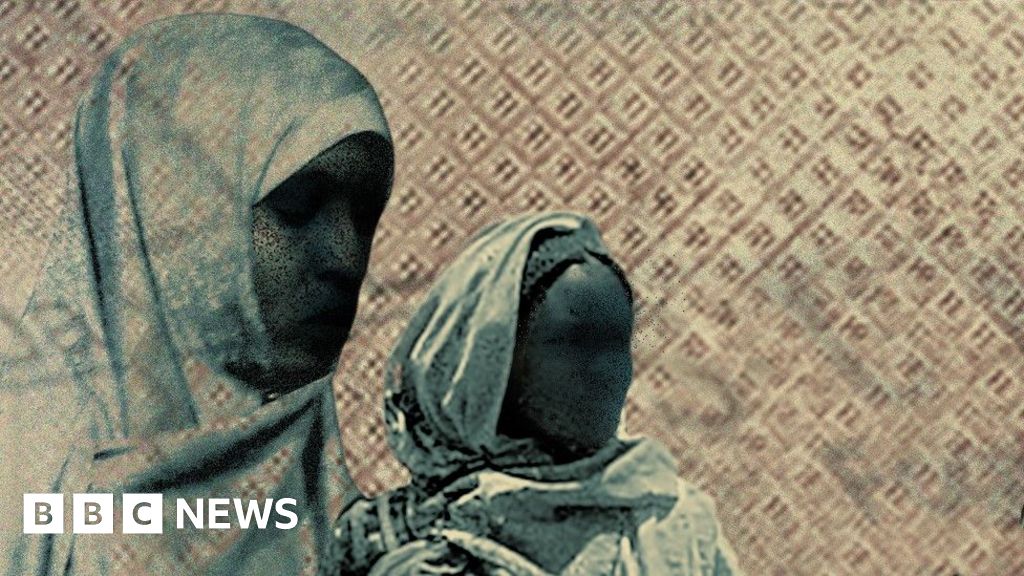ARTICLE AD BOX

The forceps used to pull out the screw of the nose pin
By Geeta Pandey
BBC News, Delhi
When Varsha Sahu accidentally inhaled the screw of her nose pin two months ago, she wasn't too concerned.
She thought the pin had gone into her stomach and would naturally pass through her digestive system.
But the metal object got lodged in her lung and caused her weeks of discomfort and shortness of breath until finally it was removed by doctors.
Like most married Hindu women in India, 35-year-old Varsha had been wearing a nose pin since her wedding "16-17 years back" as it's considered a symbol of marital status.
"I didn't know that the screw had come loose," she told the BBC on the phone from her home in the eastern Indian city of Kolkata.
"I was just chatting and I took a deep breath and I inhaled it. I had no idea it went into my airway. I thought it had gone into my stomach," the mother of two teenaged boys added.
Dr Debraj Jash, a pulmonologist at Medica Superspecialty Hospital, who removed the pin from Varsha's lung last month, described her case as "extremely rare" - Indian media have reported only two cases in the past decade.
"Sometimes we get cases where dry fruits or betel nuts have gone into people's lungs, but most such cases involve young children or elderly people above 80. A woman patient in her 30s is an exception."
Varsha had been wearing a nose pin since her wedding "16-17 years back"
Varsha's story came to light when - a month after inhaling the screw - she went to a doctor complaining of a persistent cough and shortness of breath and pneumonia. She initially blamed the breathing difficulties on an earlier injury to her nose.
When medicines didn't help, she consulted a pulmonologist. A CT scan detected the object in her lung and a subsequent chest X-ray showed what it was.
The pulmonologist sent a fibreoptic bronchoscope - a tiny camera with forceps - down her airway. But it couldn't grasp the "sharp shining object" and failed to pull it out. She then referred the patient to Dr Jash.
"We had to counsel the patient first. She was worried about undergoing a second procedure so soon after the first one, but we explained to her that the human body is designed in such a way that there's no place in it for a foreign object," he said.
"We told her there was no way her body was going to accept it and that if left untreated, her pneumonia would keep getting worse," he added.
The X-ray showed the metal object embedded in Varsha's lung
Dr Jash says he also told her that they may even have to perform an invasive surgery which would involve hiving off a part of her lung. But as it could potentially have long-term complications, he decided to give the fibreoptic bronchoscope another try.
"It is extremely difficult to pull out a sharp object with a regular flexible bronchoscope. The object had been in her lung for more than two weeks and tissues had already grown around it.
"We had to be very careful because if during extraction, the screw came in contact with the airway - which is very narrow - it could cause injury and lead to a bleeding which could cause a catastrophe."
But the procedure, which lasted 30 minutes, was successful and Varsha was discharged after four days in the hospital.
"She's been back for follow-ups and she's now perfectly fine," Dr Jash said.
Varsha laughs when I ask her if she's gone back to wearing nose pins again.
"No way. I could never imagine that something like this could happen, but it did. I do not want a repeat of it."

 8 months ago
28
8 months ago
28








 English (US) ·
English (US) ·